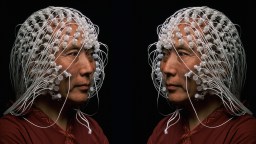Rudolph Tanzi
Dr. Rudolph Tanzi is the Joseph P. and Rose F. Kennedy Professor of Neurology at Harvard University, and Director of the Genetics and Aging Research Unit at Massachusetts General Hospital.
Dr. Tanzi has been investigating the molecular and genetic basis of neurological disease since 1980, when he participated in the pioneering study that led to location of the Huntington's disease gene, the first disease gene to be found by genetic linkage analysis. Since 1982, Dr. Tanzi has investigated the genetic causes of Alzheimer's disease (AD). He co-discovered all three genes that cause early-onset familial AD, including the first familial AD gene, known as the amyloid β-protein (A4) precursor (APP), and the presenilin genes. In 1993, Dr. Tanzi discovered the gene responsible for the neurological disorder known as Wilson's disease, and over the past 25 years, he has collaborated on studies identifying several other disease genes including those causing neurofibromatosis, amyotrophic lateral sclerosis, and autism.
Dr. Tanzi currently spearheads the Alzheimer’s Genome Project, which identified several other AD gene including CD33, which plays a role in modulating neuroinflammation in AD. This achievement was named one of the “Top Ten Medical Breakthroughs of 2008” by Time Magazine. In 1994, Dr. Tanzi discovered that the metals, zinc and copper are necessary for the formation of neurotoxic assemblies of the Aβ peptide, the main component of β-amyloid deposits in brains of AD patients. Based on this discovery, Dr. Tanzi developed the “Metal hypothesis of Alzheimer’s disease”, which has led to clinical trials for treating and preventing AD by targeting Aβ−metal interactions (Prana Biotechnology, LTD; co-founder). Dr. Tanzi is also developing a potent class of gamma secretase modulators for preventing and treating AD as well as therapies aimed at targeting the genes, CD33 and TREM2, to curb neuroinflammation in AD. In 2014, Dr. Tanzi, Dr. Se Hoon Choi, and Dr. Doo-Yeon Kim reported the first in vitro model recapitulating AD neuropathology and showing that beta-amyloid can induce neurofibrillary tangles using human stem cell-derived neural cultures grown in three-dimensional culture systems.
Dr. Tanzi is one of the ten most cited researchers in AD, having co-authored over 475 research articles. He is also listed by Thomson Reuter as one of the top 1% of researchers in the field of neuroscience. He is also a co-author the popular book “Decoding Darkness: The Search for the Genetic Causes of Alzheimer’s Disease,” the New York Times best seller, "Super Brain", and "Super Genes". Dr. Tanzi has received several awards for his work, including the two highest awards for Alzheimer’s disease research: The Metropolitan Life Foundation Award and The Potamkin Prize. He has also received the Reagan National Alzheimer’s Disease Research Award, an NIH MERIT Award, and the “Oneness of Humanity” Global Award, and the Rustum Roy Spirit Award. He is an AAAS Fellow and was included on the list of the “Harvard 100: Most Influential Alumni” of over 220,000 living alumni. In 2015 he was included on the TIME magazine list, “TIME 100 Most Influential People in the World”, and has been acknowledged by as one of the "World's Most Influential Scientific Minds”, 2014” by Reuters-Thompson, and named one of the "Top 20 Translational Scientists, 2013" by Nature Biotechnology. He received the 2015 Smithsonian American Ingenuity Award, the highest 

